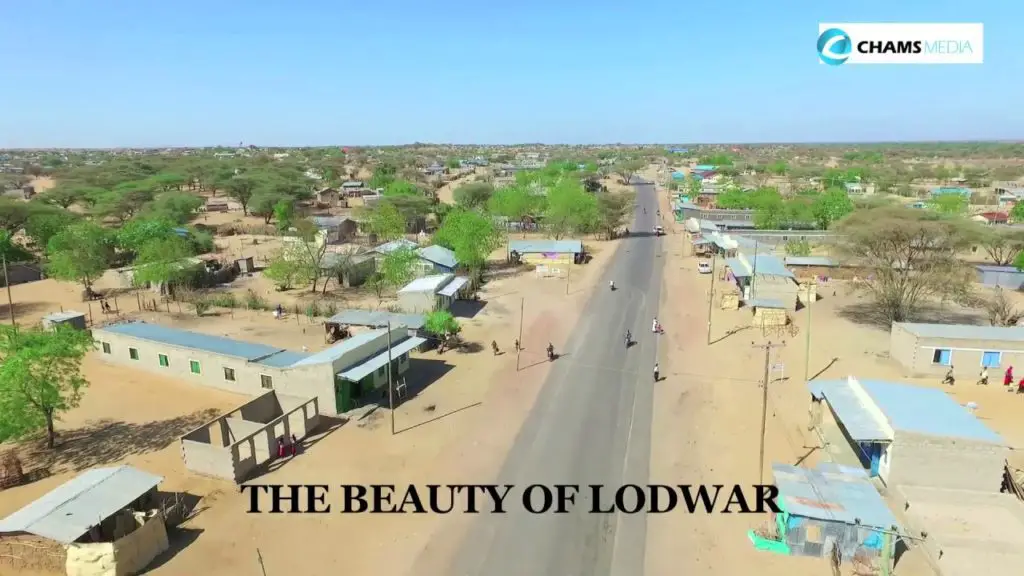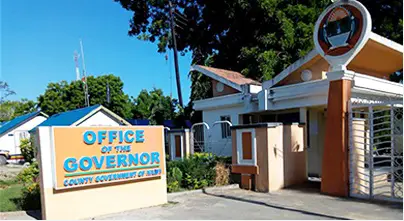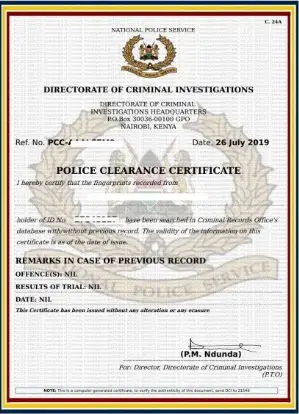Imagine a place where the calmness of a smaller town meets the vibrant energy of a bustling city – that’s Lodwar Town for you. Located in the heart of Turkana County in Kenya, this charming town has a unique charm that draws people in. From its rich cultural heritage to its stunning landscapes, Lodwar Town offers visitors a glimpse into a world where tradition and modernity coexist harmoniously. Whether you’re an adventure seeker looking to explore the vast wilderness or a culture enthusiast eager to immerse yourself in the local customs, Lodwar Town has something for everyone.
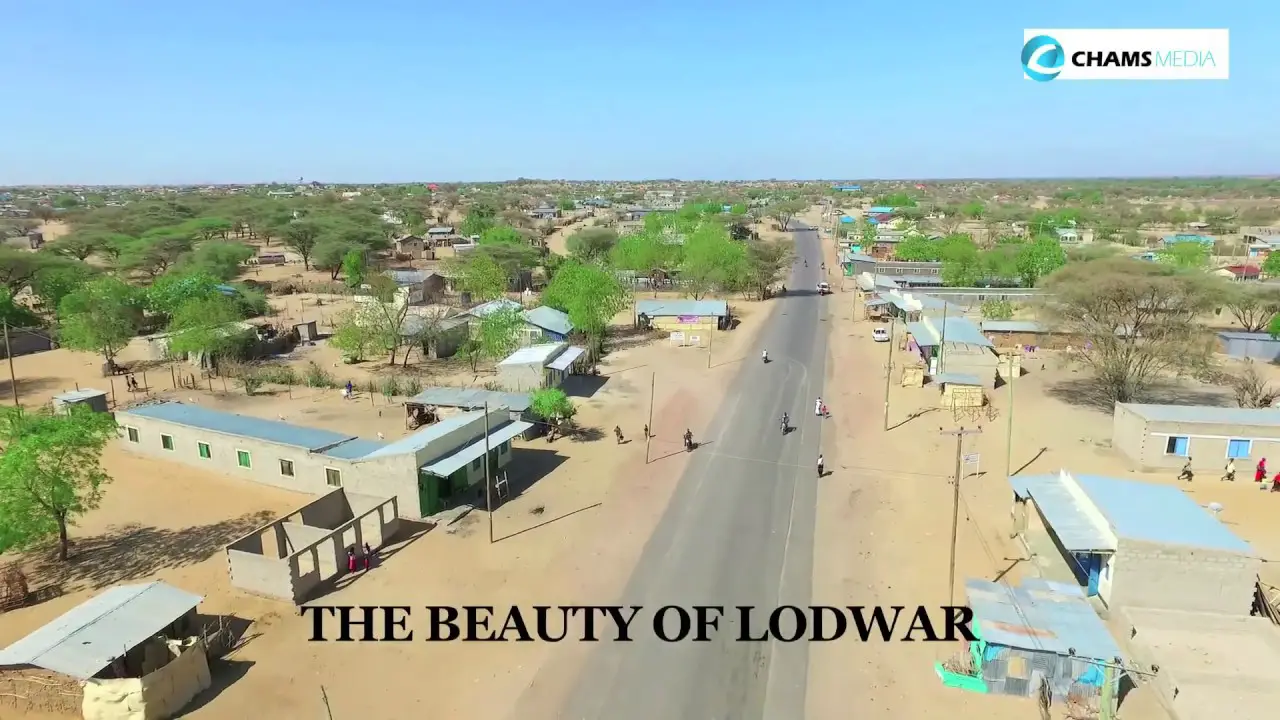
Location and Background
Geographical Location
Lodwar is a town located in the northwestern region of Kenya, specifically in Turkana County. It sits on the banks of the Turkwel River, which flows into Lake Turkana, the largest desert lake in the world. The town is nestled in a remote and arid area, surrounded by vast stretches of barren desert, rolling hills, and volcanic landscapes.
Historical Background
Lodwar has a rich historical background, with evidence of human settlement dating back thousands of years. The Turkana people have inhabited this region for centuries and have a strong cultural heritage tied to the land. The town itself began as a small trading center, primarily serving the pastoral communities in the area. Over time, it has grown and developed to become the major administrative and economic hub of Turkana County.
Demographics
Population
Lodwar has a diverse population, with residents from various ethnic backgrounds. The town has experienced significant population growth in recent years, driven by factors such as rural-to-urban migration and increased economic opportunities. The population is estimated to be around 50,000, but it continues to rise steadily.
Ethnicity
The majority of Lodwar’s population consists of the Turkana people, who are the predominant ethnic group in Turkana County. However, the town is also home to a significant number of residents from other ethnic communities, including the Turkana’s neighboring tribes, such as the Pokot and Samburu, as well as migrant populations from other parts of Kenya.
Religion
Religion plays a significant role in the lives of Lodwar residents. The town is predominantly Christian, with various denominations represented, including Catholic, Protestant, and Evangelical churches. However, traditional African beliefs and practices also persist among certain communities, blending with Christian influences.
Infrastructure
Transportation
Lodwar is connected to the rest of Kenya by several road networks, although they are often challenging to traverse due to the rugged terrain and harsh weather conditions. The closest major airport is located in Eldoret, which is approximately a seven-hour drive away. Within the town, transportation is primarily facilitated by minibusses and motorcycles, which provide both taxi and public transportation services.
Communication
Communication services in Lodwar have improved over the years. Mobile networks cover most areas, enabling residents to stay connected. The town also has internet connectivity, although it may be limited in some remote areas. Postal services are available, as well as telecommunication centers where individuals can make phone calls or access the internet.
Education
Lodwar boasts several educational institutions, ranging from primary schools to secondary schools. There are also vocational training centers and technical colleges that cater to the educational needs of the residents. The government has made efforts to expand access to education in the region, aiming to improve literacy rates and provide opportunities for the youth.
Healthcare
Healthcare facilities in Lodwar have also seen notable improvements in recent years. The town has a few hospitals and health centers that offer a range of medical services to residents. However, access to healthcare remains a challenge in some remote areas, often due to the lack of proper infrastructure and medical personnel. Efforts are being made to expand healthcare facilities and improve accessibility for the entire population.
Utilities
Basic utilities such as electricity and water supply are available in Lodwar, although access may not be consistent throughout the town. Electricity is primarily provided by the national power grid, while water is sourced from rivers, boreholes, and underground wells. However, there is still a need for further investment in infrastructure to ensure reliable and uninterrupted utility services for all residents.
Economy
Key Industries
Lodwar’s economy is primarily driven by agriculture, livestock rearing, and fishing. Due to its arid climate, irrigation projects have been implemented to support farming activities, particularly the cultivation of drought-resistant crops such as millet, sorghum, and maize. Livestock rearing, especially goat and camel herding, is also a significant economic activity. Additionally, the town serves as a trading center, attracting businesses involved in cross-border trade with neighboring countries such as South Sudan and Uganda.
Tourism
Lodwar has immense tourism potential, thanks to its unique natural landscapes and cultural heritage. Tourists are drawn to attractions such as Lake Turkana, known as the “Jade Sea” due to its stunning turquoise color and its significance as a UNESCO World Heritage site. Visitors can explore Central Island National Park, home to diverse wildlife and volcanic formations. Eliye Springs, with its hot springs and sandy beaches, is another popular tourist spot. The Lobolo Swamp also offers opportunities for birdwatching and wildlife viewing.
Agriculture
Despite the arid conditions, agriculture is a crucial sector in Lodwar. The Turkwel River, as well as numerous underground water sources, enables local farmers to engage in irrigation farming. Crops like millet, sorghum, maize, and various vegetables are grown to sustain the local population and generate income through sales to neighboring regions. There is potential for further expansion of agricultural activities, supported by modern farming techniques and improved access to markets.
Trade and Commerce
Lodwar’s strategic location as a gateway to neighboring countries has made it a bustling center for trade and commerce. Local traders engage in cross-border activities, exporting commodities like livestock, agricultural produce, and handicrafts. The town also hosts regular markets and trade fairs, attracting visitors from near and far. Efforts are being made to enhance infrastructure and logistics networks to promote trade and stimulate economic growth.
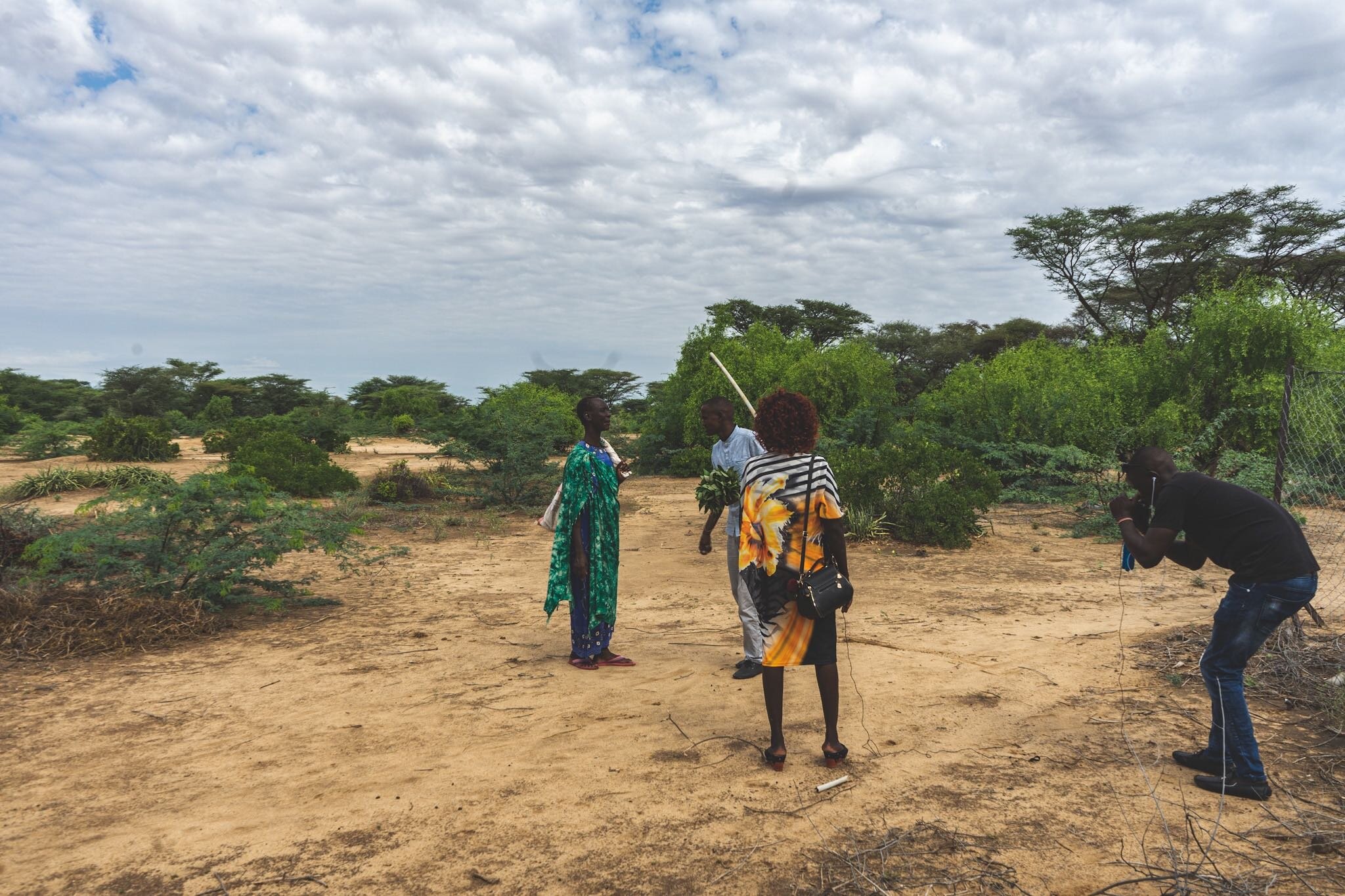
Culture and Traditions
Local Festivals
Lodwar is known for its vibrant and colorful festivals that celebrate the cultural heritage of the Turkana people. The Lodwar Turkana Cultural Festival is a highlight, featuring traditional dances, music, arts, and crafts. The festival provides a platform for residents and visitors alike to learn about and appreciate Turkana traditions and customs.
Traditional Practices
The Turkana people have a rich cultural heritage that is deeply intertwined with their daily lives. Traditional practices include cattle rustling, a long-standing tradition of cattle raids that served as a demonstration of bravery and a means of acquiring wealth. Other customs include beadwork, traditional dress, and storytelling, all of which play a significant role in preserving and passing on Turkana traditions to future generations.
Arts and Crafts
Lodwar is a hub for traditional Turkana arts and crafts. Skilled artisans create intricate beadwork, crafting beautiful jewelry and decorative items. Traditional Turkana baskets, made from locally sourced materials, are also highly sought after by tourists. Woodcarving is another traditional craft, with intricately carved wooden stools and household items showcasing the skills and creativity of the local artisans.
Music and Dance
Music and dance form an integral part of Turkana culture, creating a lively and festive atmosphere during ceremonies and celebrations. Traditional Turkana musical instruments, such as the ikembe and the traditional Turkana flute, accompany the rhythmic dances. The energetic performances, characterized by mesmerizing footwork and rhythmic body movements, are a delight to both locals and visitors.
Tourist Attractions
Lake Turkana
Lake Turkana is undeniably the most prominent tourist attraction in Lodwar. Its breathtaking beauty and ecological significance make it a must-visit destination. The lake’s sparkling waters are home to a diverse range of wildlife, including crocodiles, hippos, and various bird species. Visitors can explore the lake by boat, fish, or simply relax on its pristine sandy beaches.
Central Island National Park
Central Island National Park, situated within Lake Turkana, is an island known for its volcanic formations and unique wildlife. The island is home to three scenic crater lakes, surrounded by rugged cliffs and lush vegetation. It provides a sanctuary for various bird species, including flamingos, pelicans, and cormorants. Visitors can take guided walks to explore the island’s volcanic landscape and witness the incredible sight of the sulfur vents and hot springs.
Eliye Springs
Eliye Springs, located on the shores of Lake Turkana, is a popular destination for tourists seeking relaxation and tranquility. The natural hot springs provide therapeutic bathing experiences, while the sandy beaches offer a perfect spot for sunbathing and swimming. Visitors can also indulge in water sports such as fishing and boating, or simply enjoy the stunning sunset views over the lake.
Lobolo Swamp
Lobolo Swamp is a hidden gem in Lodwar, known for its rich biodiversity and vibrant birdlife. The wetland habitat attracts numerous bird species, including flamingos, herons, storks, and pelicans, making it a paradise for birdwatching enthusiasts. Boat tours are available, allowing visitors to witness the diverse array of avian species and experience the serene beauty of the swamp.
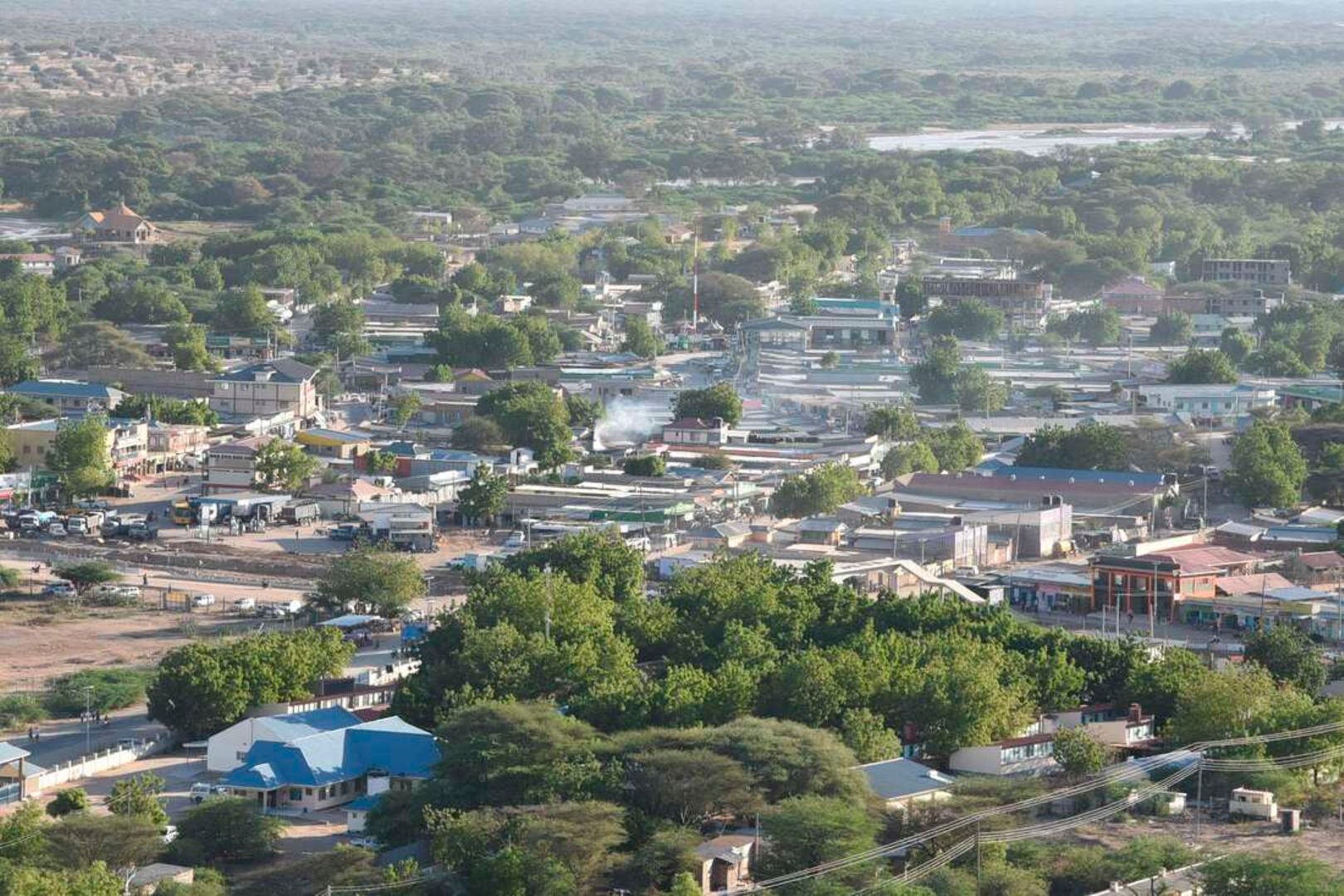
Historical Sites
Kalokol Prehistoric Site
The Kalokol Prehistoric Site is of great archaeological significance. Excavations have revealed evidence of human habitation dating back thousands of years, providing insights into the early cultural and social practices of the region’s inhabitants. The site contains ancient artifacts, tools, and fossils, offering a glimpse into the prehistoric era.
Nataruk Archaeological Site
The Nataruk Archaeological Site is another archaeological treasure in Lodwar. It is known for its well-preserved evidence of early human settlements and ancient gravesites. Excavations at the site have unearthed human skeletons and artifacts, shedding light on the history and lifestyles of the Turkana people in ancient times.
Lothagam North Pillar Site
The Lothagam North Pillar Site is renowned for its ancient stone pillars, which bear rock art depicting humans, animals, and other significant symbols. These petroglyphs provide invaluable insights into the cultural and artistic expressions of the early inhabitants of the region. The site offers a fascinating journey through time, allowing visitors to appreciate the ancient rock art and its historical significance.
Local Cuisine
Dishes and Ingredients
Lodwar’s cuisine is influenced by the nomadic lifestyle of the Turkana people, as well as the availability of local ingredients. Staple foods include sorghum, millet, and maize, which are used to make dishes like ugali (a thick maize flour porridge) and traditional breads. Animal products play a vital role in the diet, with goat and camel meat featuring prominently in various dishes. Leafy vegetables, wild fruits, and honey are also incorporated into the local cuisine, providing a unique and flavorful dining experience.
Traditional Drinks
Traditional Turkana drinks are an essential part of the local culture. Milk, obtained from goats and camels, is a staple beverage, consumed both fresh and fermented. Traditional beer, known as mursik, is made by fermenting milk and adding special herbs and spices. It is enjoyed during social gatherings and traditional ceremonies, serving as a symbol of hospitality and communal unity.
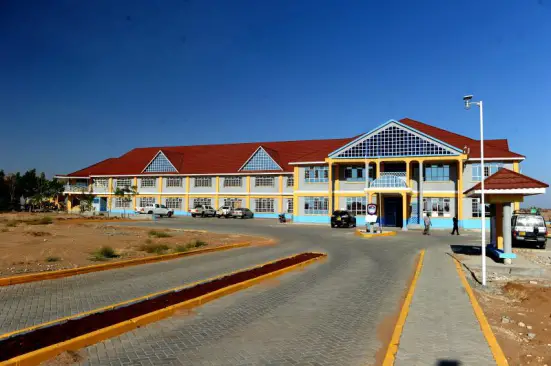
Sports and Recreation
Football
Football is a popular sport in Lodwar, bringing communities together and fostering a sense of unity. Local teams participate in various leagues and tournaments, showcasing their skills and passion for the game. Football matches are attended by enthusiastic crowds, creating an electric atmosphere and strengthening community bonds.
Athletics
Lodwar residents also excel in athletics, with many individuals participating in regional and national competitions. The town has produced talented long-distance runners, known for their endurance and speed. Athletics clubs and training facilities provide opportunities for aspiring athletes to develop their skills and showcase their talent on a larger stage.
Volleyball
Volleyball is another beloved sport in Lodwar, enjoyed by both the young and old. Friendly matches and tournaments are organized, encouraging healthy competition and promoting a sense of sportsmanship among players. The town has produced skilled volleyball players who have represented the region in national and international competitions.
Cultural Games
In addition to modern sports, traditional cultural games are an integral part of Lodwar’s recreational activities. Games like ajua, a form of stick wrestling, and asethoven, a tug of war, foster a spirit of camaraderie and provide entertainment during community gatherings. These traditional games reflect the cultural heritage and resilience of the Turkana people.
Challenges and Development
Infrastructure Development
While Lodwar has seen significant progress in terms of infrastructure, there is still a need for further development. Improved road networks and transportation systems are crucial to enhance connectivity within the town and with neighboring regions. Investments in reliable electricity and water supply systems are also necessary to ensure continuous access to essential services for all residents.
Poverty and Unemployment
Lodwar faces challenges related to poverty and unemployment, particularly among the youth. The town’s economy heavily relies on agriculture and livestock, which can be affected by climate change and droughts. Efforts are being made to diversify the economy and create more job opportunities through initiatives such as tourism promotion, entrepreneurship support, and vocational training programs.
Water and Sanitation
Access to clean water and proper sanitation facilities remains a pressing issue in Lodwar. The arid climate and limited water sources make it challenging to provide consistent water supply to all residents. The government, in collaboration with non-profit organizations, has implemented projects to improve access to clean water and promote proper sanitation practices to reduce health risks and improve the quality of life for the community.
Environmental Conservation
Lodwar’s unique natural landscapes and biodiversity face threats from climate change, deforestation, and unsustainable practices. Efforts are being made to promote environmental conservation and sustainable resource management. Initiatives such as tree planting campaigns and community-led conservation projects aim to preserve the region’s natural resources for future generations while mitigating the effects of climate change.
In conclusion, Lodwar is a town with a captivating blend of cultural heritage, natural beauty, and historical significance. From its remote location in northwestern Kenya, Lodwar welcomes visitors with its warm hospitality and offers a range of attractions and activities to explore. With ongoing development efforts, the town continues to strive towards a brighter future, balancing economic growth with the preservation of its unique cultural and natural heritage.

